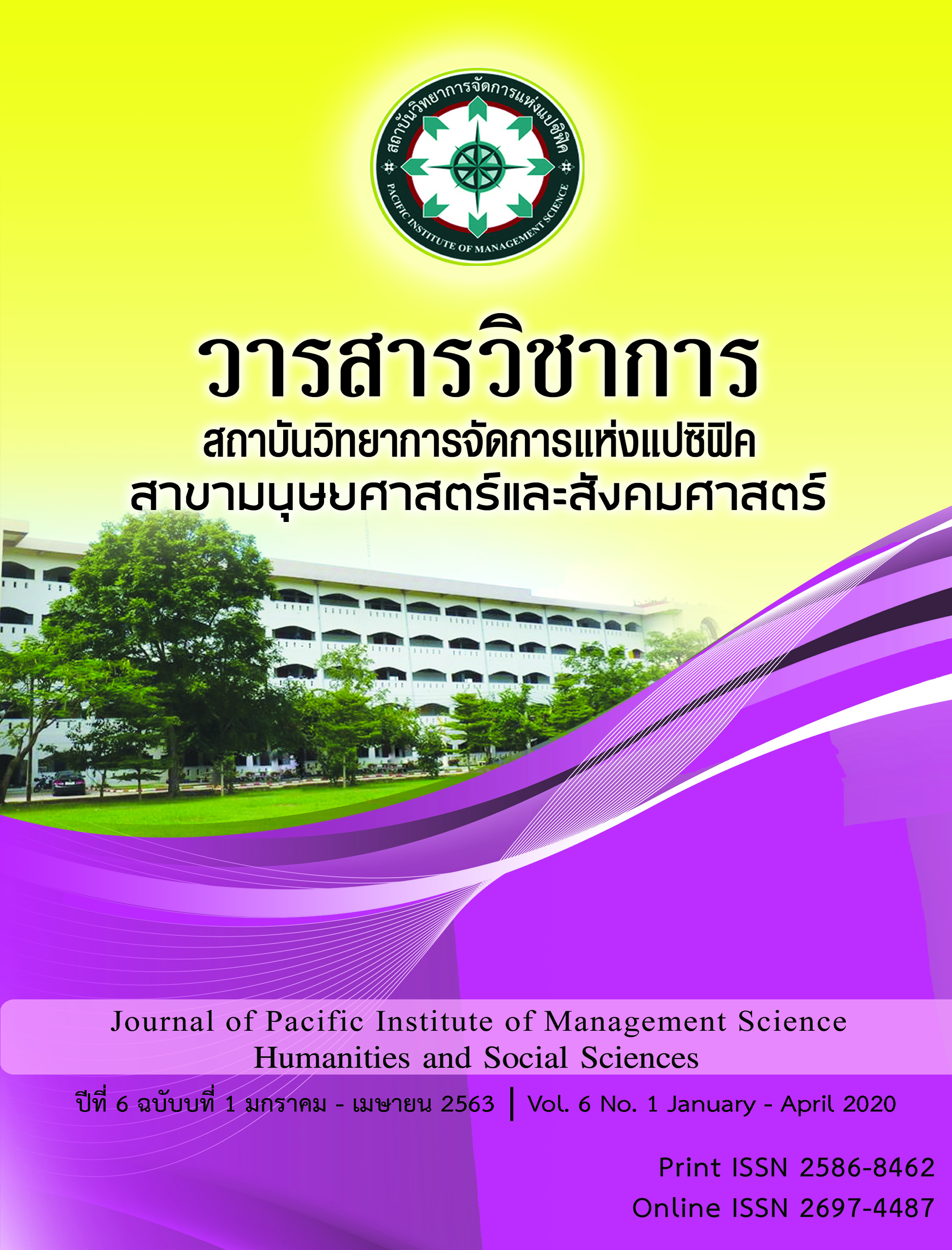The Relationship Marketing and Service Quality Influencing SOAR Analysis through Brand Loyalty in the Cosmetic Industry of Thailand
Keywords:
Relationship Marketing, SOAR, Brand Loyalty, Cosmetic IndustryAbstract
This research topic is The Relationship Marketing and Service Quality Influencing SOAR Analysis through Brand Loyalty in the Cosmetic Industry of Thailand. The research objectives: (1) to study the factors of the Relationship Marketing and Service Quality Influencing SOAR Analysis through Brand Loyalty in the Cosmetic Industry of Thailand (2) to study the Relationship Marketing and Service Quality Influencing SOAR Analysis through Brand Loyalty in the Cosmetic Industry of Thailand (3) to construct the model of the Relationship Marketing and Service Quality Influencing SOAR Analysis through Brand Loyalty in the Cosmetic Industry of Thailand. This research approved Mixed Methods by using 500 questionnaires from cosmetics end users or customers and data analysis applying Structural Equation Modeling: SEM to trial the hypotheses including In-depth interview to confirm the results.
According to the results, the Relationship Marketing presented the direct effect to Brand Loyalty as well as Service Quality had effect to Brand Loyalty. Moreover, the Relationship Marketing gave the effect to SOAR analysis. The Service Quality had effect to SOAR analysis. The SOAR analysis also effected direct to Brand Loyalty. Indeed, the Relationship Marketing and Service Quality had direct effect on SOAR Analysis through Brand Loyalty.
References
Atiedu, A. A. (2012). The implementation of an appreciative inquiry-focused strategic planning in a Baptist church (Doctoral dissertation, Pepperdine University).
Chen, J., Gursoy, D., S. & G. Chi, C. (2014). Theoretical examination of destination loyalty formation. International Journal of Contemporary Hospitality Management, 26(5), 809-827.
Gronroos, C. (1994). From marketing mix to relationship marketing: Towards a paradigm shift in marketing. Asia-Australia Marketing Journal, 2(1), 9-29.
Kasikorn Research Center. (2018) Beauty Trend. Retrieved January 5, 2019, from https://kasikornbank.com/th/business/sme/KSMEKnowledge/article/KSMEAnalysis/Pages/Beauty-Business_Trend.aspx
Morgan, R. M., & Hunt, S. D. (1994, July). The commitment-trust theory of relationship marketing. Journal of Marketing. 58(July 1994). 20-38.
Oliver, R. L. (1999). When consumer loyalty. Journal of Marketing, 63, 33-44.
Parasuraman, A., Zeithaml, V. A., & Berry, L. L. (1985). A conceptual model of service quality and its implications for future research. Journal of marketing, 49(4), 41-50.
Parasuraman, A., Voss, G. B., & Grewal, D. (1998). The roles of price, performance, and expectations in determining satisfaction in service exchanges. Journal of marketing, 62(4), 46-61.
Downloads
Published
Issue
Section
License
บทความที่ได้รับการตีพิมพ์เป็นลิขสิทธิ์ของ สถาบันวิทยาการจัดการแห่งแปซิฟิค
ข้อความที่ปรากฏในบทความแต่ละเรื่องในวารสารวิชาการเล่มนี้เป็นความคิดเห็นส่วนตัวของผู้เขียนแต่ละท่านไม่เกี่ยวข้องกับสถาบันวิทยาการจัดการแห่งแปซิฟิค และคณาจารย์ท่านอื่นๆในสถาบันฯ แต่อย่างใด ความรับผิดชอบองค์ประกอบทั้งหมดของบทความแต่ละเรื่องเป็นของผู้เขียนแต่ละท่าน หากมีความผิดพลาดใดๆ ผู้เขียนแต่ละท่านจะรับผิดชอบบทความของตนเองแต่ผู้เดียว







